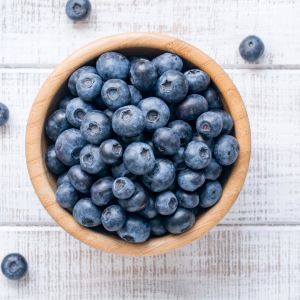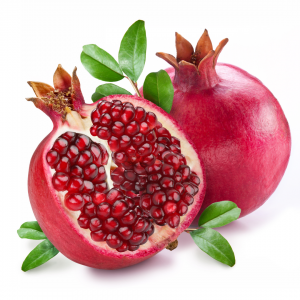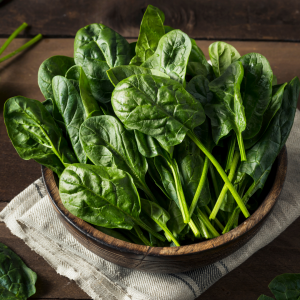How to Boost Your Fertility Naturally
Overview
How to boost fertility is one of the most common question couples ask, especially if it’s been a while since they started trying to conceive.
Unfortunately, the online community is a hub of misinformation that would claim anything for financial profit.
I want to change that!
For this reason, i decided to write this comprehensive guide that covers scientifically-proven methods to boost your fertility naturally.
The best natural ways to boost your fertility
1. Consume these foods
Your diet plays a primary role in increasing or decreasing your fertility. This section will cover some foods with fertility-boosting properties.

Blueberries
Blueberries are loaded with vitamins, minerals, and antioxidants, which offer a myriad of health benefits, including improved fertility and an optimized female reproductive system.
One major component that promotes female fertility is fiber, which is abundantly found in blueberries and helps regulate progesterone and estrogen levels, as well as weight loss.
Another compound that’s found in blueberries and helps with fetal development is folate (i.e., vitamin B9), which is crucial for organogenesis, the formation of the central nervous system, and DNA replication.
Finally, vitamin C has potent antioxidative properties that make it extremely beneficial for conception and fetal development since it eradicates the free-circulating reactive oxygen species (ROS) that interfere with female ovulation and the health of the ovum.
 Pomegranate
Pomegranate
Pomegranates have been associated with fertility since ancient times due to its positive effects on egg health and the increase in chances of conception.
When researchers attempted to study the effects of pomegranate on female fertility, they found that this fruit is packed with extremely potent antioxidants (flavonoids) that prevent oxidative stress and reduce the risk of inflammation in the reproductive system (e.g., uterus, fallopian tubes, ovaries).
Pomegranate also contains vasodilatory compounds that increase blood flow to the uterus and ovaries, which helps in the nourishment of the egg and the circulation of vital hormones (e.g., estrogen, progesterone).
Other substances found in pomegranate include folic acid and phytoestrogens, which protect the reproductive system from conditions that disrupt fertility, such as endometriosis and uterine fibroids.
 Goji Berries
Goji Berries
Goji berries gained a lot of traction over the past few years as fertility optimizers due to their rich content in antioxidants that boost energy and regulate the process of ovulation.
According to studies, the regular consumption of goji berries promotes the growth of follicles and the implantation process.
Nutritionally speaking, goji berries are very rich in vitamins A, C, and B2, iron, and a set of potent antioxidants.
Vitamin C is especially beneficial to conception as it regulates the menstrual cycle to optimize the mobilization of the ovum.
One important antioxidant found in goji berries is zeaxanthin, which is responsible for the color of goji berries and also interferes with body temperature. This is absolutely crucial for sperm survival and the fertilization of the egg.
 Chia Seeds
Chia Seeds
Chia seeds are rich in omega-3 fatty acids, which offer a myriad of health benefits, including cardiovascular optimization and the improvement of blood flow to the uterus.
According to studies, chia seeds are on top of the list when it comes to omega-3 content compared to any other plant-based food.
This compound also reduces the cellular sensitivity to prolactin, which is a known suppressor of ovulation. Another function of omega-3 is to normalize the menstrual cycle and increase the cervical mucus during ovulation to allow for a smoother migration of the sperm to fertilize the egg.
However, the benefits of chia seeds do not end at the conception, as they also participate in the baby’s development (e.g., cardiovascular system, central nervous system).
Overall, if you are trying to increase your chances of conception, you must include chia seeds in your diet.
 Quinoa
Quinoa
Over the years, scientists have been trying to identify the best protein source to increase the odds of conception. They found that plant-based proteins are significantly superior to those obtained from animal sources.
According to one study, replacing 5% of your animal-based protein intake with plant-based protein reduces the risk of infertility by up to 50%, which is absolutely impressive.
The exact mechanisms that lead to these results are still being unclear, but researchers believe it has something to do with regulating the ovulatory cycle to improve ovum migration and implantation, as well as the uterine milieu for sperm.
Other compounds found in quinoa include folate (i.e., vitamin B9) and zinc, which are well-documented for their positive effects on reproduction.
The rich fiber of this plant also helps in the regulation of blood pressure and flow, and eventually, the menstrual cycle.
 Spinach
Spinach
Similar to other leafy green vegetables, spinach is an excellent choice to increase the chances of conception since it contains beneficial nutrients, such as folate, iron, and zinc, which make up the three essential minerals that all women need before getting pregnant.
In fact, iron deficiency is a major issue that delays conception since it interferes with numerous biochemical reactions that occur in the ovum.
According to the University of Washington, consuming foods that are rich in folate and iron significantly reduces the risk of infertility, which is why all women who are trying to get pregnant should incorporate spinach into their diets.
Moreover, spinach is rich in polyphenols, which are a group of potent antioxidative compounds that neutralize the harmful effects of reactive oxygen species (i.e., free radicals) to allow the egg to mature without DNA damage and/or inflammation.
2. Make some changes
Exercise more often
Exercise offers a myriad of benefits to your health, including increased fertility.
According to research, moderate physical activity increases fertility in both men and women, especially if they’re obese.
Note that extreme physical activity could be counterproductive; therefore, keep in mind that moderation is key.
Change your underwear
Heat is the number one enemy of conception, especially for men.
High temperatures around the testicles decrease the rate of sperm production, which lowers the chances of one sperm making it to the egg.
For this reason, fertility experts recommend wearing boxer shorts for men to lower the temperature around the testicles.
Change your lubricant
Many people are not aware that the lubricant they’re using might be a reason for infertility.
You see, some of these products get labeled as a spermicide, which means that they disintegrate the structure of the sperm when used.
Therefore, make sure that the type of lubricant you’re using is sperm-friendly to keep your chances of conception high.
Change your sex position
Despite the large number of misconceptions and myths surrounding this topic, experts recommend sticking to the missionary position when trying to conceive since it brings the semen closer to your cervix.
With that being said, do not expect this to cure infertility caused by other underlying diseases.
The important thing to note however is once the sperm is healthy the best swimmer will be the one to meet the egg and impregnate it. If the sperm is not healthy and cannot swim helping it by doing the missionary position or laying down with your feet elevated is not going to make much difference.
3. Avoid these habits
Chronic caffeine consumption
In one study, women who consumed more than 5 cups of coffee per day had to wait an average of 9 months before becoming pregnant.
Smoking
The harmful chemicals found in cigarettes damage the quality of sperm and reduces the chances of conception.
foods
The list of foods that negatively impact conception is still a hot topic of debate, as research has not definitively confirmed or excluded their effects.
However, and for safety’s sake, here are some foods that you should avoid when trying to conceive:
- High-mercury fish
- High-glycemic-index foods (e.g., synthetic juices)
- Unpasteurized soft cheeses
- Low-fat dairy
- Excess alcohol
- Soda
- Trans-fats
- Deli meat
- Added white or brown sugar
Takeaway message
Learning how to boost fertility can be overwhelming and confusing in the beginning.
Hopefully, this article managed to introduce the most effective ways to achieve this goal, but if you still have any questions or concerns, please don’t hesitate to share your thoughts in the comment section below.

